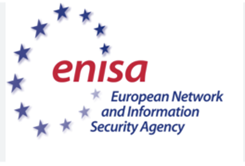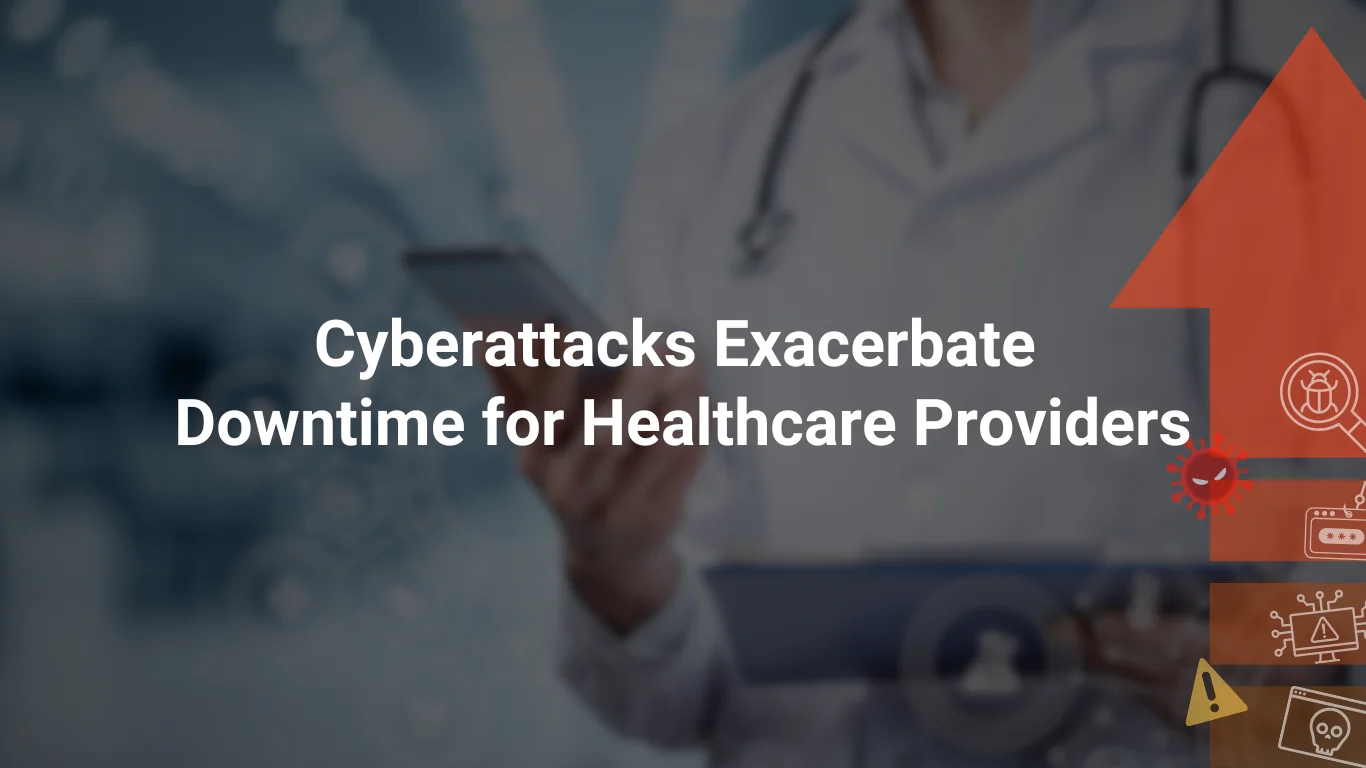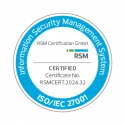From Reactive to Proactive: Transitioning from EDR to MDR
Why Is EDR Not Enough, and Why Do You Need Managed Detection and Response (MDR)?
 Cybersecurity protection is more about the layers than one specific element. Hackers use aggressive tactics embedded within their evolving kill chains. Powered by adversarial artificial intelligence (AI), hackers now have the tools to redirect their attacks based on near real-time from processed security telemetry data. This rapid change, combined with increased velocity, compels organizations to enrich their various layers of security protection with more unified incident response, monitoring, and automated adjustments.
Cybersecurity protection is more about the layers than one specific element. Hackers use aggressive tactics embedded within their evolving kill chains. Powered by adversarial artificial intelligence (AI), hackers now have the tools to redirect their attacks based on near real-time from processed security telemetry data. This rapid change, combined with increased velocity, compels organizations to enrich their various layers of security protection with more unified incident response, monitoring, and automated adjustments.
This article discusses the importance of endpoint detection and response (EDR) and the critical need for organizations to subscribe to a managed detection and response (MDR) service. EDR alone has a very marginal impact on reducing the threat and risk to the organization.
Introduction to EDR: What is the Role of EDR?

These vulnerabilities result in lateral-moving attacks, including ransomware. Deploying EDR helps protect these endpoints; however, this protection layer is only a specific segment of the overall cybersecurity needed for organizations to fully protect their user’s data while remaining compliant with various regulations.
EDR Becoming a Key Contributor to the Overall Cybersecurity Strategy.
EDR is critical in an organization’s overall protection strategy. These solutions focus solely on analyzing endpoint activities and applying, as needed, the ability to stop potential threats like malware, trojan horses, and rootkits from exploiting the hosts, devices, and end-user workstations.
These tools collect and feed the telemetry into the vendor management console or an enterprise-wide security information event management (SIEM) solution. Behavior-based analytics and static rule sets assist EDR solutions with analysis and alert information capabilities. Often compared to anti-virus (AV) solutions, EDR does far more analysis, including looking for malware and zero-day attacks than AV. These solutions frequently replace AV on the endpoint.
With their analytics and policies, EDR also analyzes applications and processes on the endpoint for malicious behavior. This solution, though a step up from AV, still required frequent updates from the management console to continue to be effective.
What are the Limitations of EDR?
Many EDR solutions are critical; however, there are several challenges to this solution that could be improved.
- EDR provides a limited ability only to protect the endpoints. While this is an essential protection layer, the solution does little to provide at malicious activity within the various network layers.
- EDR solutions are very chatty and generate several false positives and negatives for the security operations (SecOps) team to address.
- EDR has impacted endpoint performance, resulting in end users opening many helpdesk tickets or attempting to disable the agent on their devices. This action often resulted in exploited endpoints.
Another very critical element of EDR is its overall posture. This solution primarily operates in a reactionary, not a proactive, mode. This tactical strategy negatively impacts an organization, particularly when hackers now have access to AI attack tools. These tools quickly overwhelm reaction-first detection tools. Other cybersecurity tools that function in a prevention mode survive longer during velocity-based attacks.
Why is MDR Critical to an Organization?
Organizations recognize the limitations of EDR and understand the need to protect the rest of their environment with tools that function similarly. Network detection and response (NDR), host-based intrusion tools, and Zero-trust architecture help reduce several attack surfaces not covered by EDR.
MDR is the common thread needed to make EDR, NDR, Zero-trust, and hosted-based intrusion work in a unified manner. These separate cybersecurity solutions require qualified security engineers to configure. Most organizations continue to need help with retaining talent to manage these solutions. Hiring and training EDR, NDR, Zero-trust, and host-based intrusion engineers is a near-impossible task.
MDR providers have access to experienced human expertise, a 24x7x365 monitor of all the cybersecurity protections, and offer incident response services, threat modeling, and reporting services. These providers leverage global service centers, allowing them to provide regional and international follow-the-sun capabilities.
Another valuable component of MDR is assisting organizations with the transition from a reactive and resource-intensive culture into a more proactive security posture.
The Growth of XDR Within an MDR Offering.
Extended detection and response (XDR) collect all security telemetry processed from the various protection layers, including EDR, NDR, and host-based intrusion. Powered by AI and machine learning (ML), XDR solutions help organizations see kill chain development quicker before the attack becomes executed.
Note: Organizations with resource constraints staffing their security operations center with a house security team will leverage an MDR provider to help manage the XDR solution.
How Does MDR Assist Organizations with DORA, NIS2, and GDPR Compliance?
Dora
The European Union adopted a digital finance package on September 24, 2020, to foster a European approach to technological development in the financial sector. This mandate includes legislative initiatives to promote innovation and competition while addressing risks associated with digital tools.
- The DORA regulation, scheduled for January 17, 2025, aims to enhance the IT security of financial entities, including banks, insurance companies, and investment firms.
- DORA mandates that financial entities document all incidents and follow thorough incident management protocols. This mandate involves creating specific procedures for categorizing incidents and evaluating their consequences, considering factors like service criticality, geographic reach, and data types affected.
MDRs provide organizations with continuous monitoring to detect, investigate, notify, and respond to incidents. They are critical to detecting material attacks against financial entities from unknown threats. DORA required notification of the breach and specifics around the organizations to detect and respond. MDR is essential to helping organizations meet DORA reporting and notification requirements.
NIS2
The NIS directive aims to establish a standard level of security for network and information systems, which are crucial to the economy and society. It focuses on addressing threats such as cyber-attacks from various sources.
“The NIS2 Directive requires prompt reporting of significant incidents. Organizations must notify the relevant authority or CSIRT.”
MDR offerings support organizations by providing detailed forensics of the security breach in near real-time along with notification and automation response to help prevent the attack from spreading.
GDPR
The General Data Protection Regulation (GDPR) demonstrates Europe’s strong commitment to data privacy and security at a time when personal data is stored in cloud services, and breaches continue to affect the organization. The extensive regulation needs more detailed specifications, making GDPR compliance challenging, especially for small and medium-sized businesses.
The GDPR requires organizations to have a solid plan to detect, address, and report any breaches that may impact people’s data.
MDR offerings that rapid response, notification, and telemetry collection are needed for GDPR reporting and compliance.
What Are Real-World Case Studies Presenting the Advantage of MDR?
Sweden

“In Sweden, the Swedish Civil Contingencies Agency (MSB) is the responsible authority for incident reporting. The organization must provide an early warning within 24 hours of the incident and a detailed report within 72 hours.”
MDR services are the cornerstone of helping organizations like the MSB report material security breaches.
European Agency for Cybersecurity (ENISA)

ENISA mandated increased operational cooperation at the EU level, helped EU Member States that requested it to handle their cybersecurity incidents, and supported the EU’s coordination in large-scale cross-border cyberattacks and crises.
On April 18, 2023, the Commission proposed an amendment to the EU Cybersecurity Act to create certification schemes for managed security services like incident response and penetration testing, ensuring quality and reliability. Managed MDR services are another evolution of the value of organizations investing in this capability to help meet their compliance requirements.
Conclusion

In 2023, German companies incurred losses totaling 205.9 billion euros from cybercrime, with an additional nearly 30 billion euros spent on legal disputes. The smallest amount of financial loss was attributed to fraud attempts.
These statistics, combined with DORA, NIS2, and GPDR compliance requirements, compel organizations to deploy all essential cybersecurity technology capabilities, including EDR, NDR, Host-based intrusion, and Zero-trust.
The underlying fabric aligns these critical protection areas with the investment in MDR offerings. As cybersecurity solutions become more integrated and complex, organizations must consider an MDR offering to help them meet compliance, reporting, and notification mandates.
Why Forenova Security for MDR Services?
MDR assists organizations with their compliance and privacy regulations, including HIPAA, PCI-DSS, NIS2, DORA, GDPR, and CCPA, just to name a few. These regulations require the organization to prove that it has the capacity and capability to respond to next-generation AI-powered cyberattacks and the increase in velocity.
Forenova Security is a leading provider of cybersecurity services and MDR offerings. For organizations seeking a partner to augment their current security operations (SecOps) team or provide a complete 24×7 monitoring and response, threat intelligence, and other cyber defense tools, Forenova Security has access to experienced engineers to meet your business and compliance goals.
Why Forenova Security for MDR Services?
MDR assists organizations with their compliance and privacy regulations, including HIPAA, PCI-DSS, NIS2, DORA, GDPR, and CCPA, just to name a few. These regulations require the organization to prove that it has the capacity and capability to respond to next-generation AI-powered cyberattacks and the increase in velocity.
Forenova Security is a leading provider of cybersecurity services and MDR offerings. For organizations seeking a partner to augment their current security operations (SecOps) team or provide a complete 24×7 monitoring and response, threat intelligence, and other cyber defense tools, Forenova Security has access to experienced engineers to meet your business and compliance goals.
The Definitive Guide to MDR
Learn how to unlock your path to proactive, cost-effective, and compliant cybersecurity.







